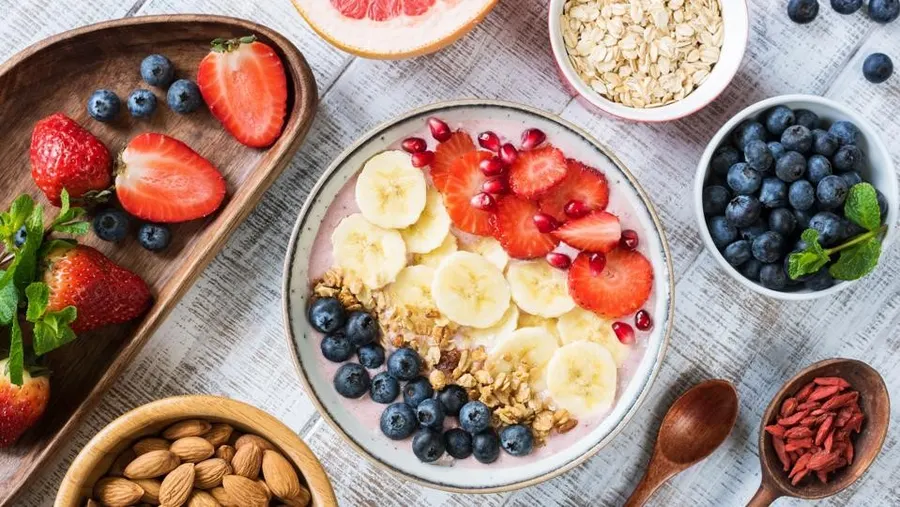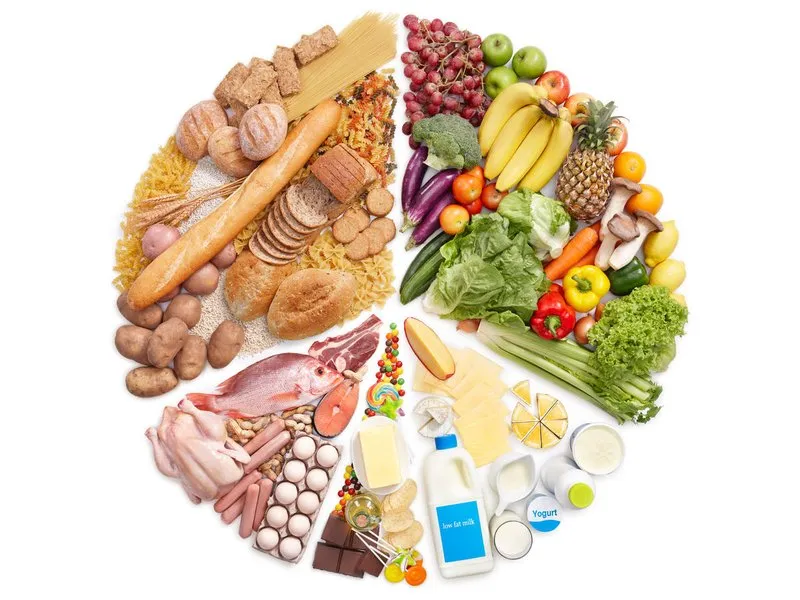A Guide to Starting Your Day Right
Breakfast is often referred to as the most important meal of the day, and for good reason. It sets the tone for your entire day, providing the essential nutrients and energy needed to kickstart your metabolism, enhance cognitive function, and maintain overall health. A well-balanced breakfast can help stabilize blood sugar levels, curb cravings, and improve concentration and productivity throughout the day. This article explores the key nutrients that should be included in your breakfast to ensure you start your day on the right foot.
Essential Nutrients to Include at Breakfast
1. Protein
Protein is a crucial component of a balanced breakfast. It plays a significant role in building and repairing tissues, producing enzymes and hormones, and maintaining healthy muscles. A protein-rich breakfast can also keep you feeling full longer, reducing the likelihood of mid-morning snacking.
Benefits:
- Promotes satiety, reducing the urge to overeat later in the day.
- Supports muscle maintenance and repair, especially important for those who exercise regularly.
- Helps stabilize blood sugar levels.
Examples:
- Eggs: A versatile and complete protein source, eggs can be prepared in various ways and paired with vegetables or whole grains.
- Greek Yogurt: Rich in protein and probiotics, Greek yogurt can be paired with fruits and nuts for added nutrients.
- Nuts and Seeds: Almonds, walnuts, chia seeds, and flaxseeds are excellent sources of protein and healthy fats.
- Lean Meats: Turkey or chicken sausages offer a lean protein option for those who enjoy a savory breakfast.
2. Fiber
Fiber is essential for digestive health and helps regulate blood sugar levels. A fiber-rich breakfast can keep you feeling full and satisfied, preventing overeating and supporting weight management.
Benefits:
- Aids in digestion and prevents constipation.
- Helps regulate blood sugar levels, especially important for those with diabetes or insulin resistance.
- Promotes a feeling of fullness, aiding in weight management.
Examples:
- Whole Grains: Oatmeal, whole-grain bread, and quinoa are excellent sources of fiber and complex carbohydrates.
- Fruits: Berries, apples, bananas, and pears are high in fiber and also provide essential vitamins and antioxidants.
- Vegetables: Spinach, kale, and other leafy greens can be easily incorporated into breakfast smoothies or omelets.
- Legumes: Beans and lentils can be included in savory breakfast dishes like burritos or mixed into salads.
3. Healthy Fats
Healthy fats are essential for brain function, hormone production, and the absorption of fat-soluble vitamins. Including healthy fats in your breakfast can help keep you satisfied and provide long-lasting energy.
Benefits:
- Supports brain health and cognitive function.
- Aids in the absorption of vitamins A, D, E, and K.
- Helps maintain healthy skin and hair.
Examples:
- Avocado: Rich in monounsaturated fats, avocado can be spread on toast or added to smoothies.
- Nuts and Seeds: Almonds, chia seeds, and flaxseeds provide omega-3 fatty acids and other essential nutrients.
- Olive Oil: A drizzle of olive oil over a breakfast salad or in a savory dish can add healthy fats to your meal.
- Nut Butters: Peanut butter, almond butter, or cashew butter can be spread on whole-grain toast or added to smoothies.
4. Complex Carbohydrates
Complex carbohydrates provide a slow and steady release of energy, keeping you fueled throughout the morning. Unlike simple carbs, complex carbs are digested more slowly, preventing spikes in blood sugar levels.
Benefits:
- Provides sustained energy, helping to avoid mid-morning energy crashes.
- Supports healthy digestion and regular bowel movements.
- Helps maintain stable blood sugar levels.
Examples:
- Oats: A classic breakfast option, oats are rich in fiber and can be paired with fruits, nuts, and seeds.
- Sweet Potatoes: A nutrient-dense carb, sweet potatoes can be roasted or mashed and served with eggs or yogurt.
- Whole-Grain Bread: Toasted whole-grain bread can be topped with avocado, eggs, or nut butter for a balanced meal.
- Brown Rice: Brown rice can be used in savory breakfast bowls with vegetables and lean protein.
5. Vitamins and Minerals
A nutritious breakfast should also include a variety of vitamins and minerals to support overall health. These micronutrients play a role in everything from immune function to bone health.
Key Vitamins:
- Vitamin C: Found in fruits like oranges, strawberries, and kiwi, vitamin C boosts the immune system and aids in collagen production.
- B Vitamins: B vitamins, found in whole grains, eggs, and dairy products, support energy production and brain function.
- Vitamin D: Found in fortified dairy products and eggs, vitamin D is essential for bone health and immune function.
Key Minerals:
- Calcium: Essential for bone health, calcium is found in dairy products, fortified plant milks, and leafy greens.
- Iron: Important for oxygen transport in the blood, iron is found in lean meats, beans, and fortified cereals.
- Magnesium: Found in nuts, seeds, and whole grains, magnesium supports muscle function and energy production.
Examples of Balanced Breakfasts
High-Protein Breakfasts
- Example Meal: Scrambled eggs with spinach and whole-grain toast.
- This meal provides a good balance of protein, fiber, and healthy fats, keeping you full and energized.
Fiber-Rich Breakfasts
- Example Meal: Oatmeal with berries and chia seeds.
- Oats provide complex carbs and fiber, while berries add antioxidants and vitamins.
Healthy Fat-Focused Breakfasts
- Example Meal: Avocado toast with a sprinkle of nuts.
- Avocado provides healthy fats, and whole-grain toast offers fiber and complex carbs.
Balanced Breakfast Combinations
- Example Meal: Greek yogurt with mixed fruits, nuts, and honey.
- This combination offers protein, healthy fats, and a range of vitamins and minerals.
Foods to Avoid or Limit at Breakfast
Sugary Cereals
- Often high in refined sugars and low in fiber, sugary cereals can lead to energy crashes and increased hunger later in the day.
Pastries and Refined Carbs
- Foods like donuts, muffins, and white bread are high in refined carbs and sugars, offering little nutritional value and leading to rapid spikes in blood sugar.
Processed Meats
- Bacon, sausage, and other processed meats are often high in sodium and unhealthy fats, which can increase the risk of heart disease and other health issues.
Overly Caffeinated Beverages
- While coffee can be part of a healthy breakfast, consuming it in excess, especially with added sugars and cream, can lead to dehydration and increased calorie intake.
Tips for Building a Nutritious Breakfast
Meal Planning and Preparation
- Plan your breakfasts ahead of time to ensure you have a variety of nutrient-dense options ready to go.
Incorporating a Variety of Nutrients
- Aim to include a balance of protein, fiber, healthy fats, and complex carbs in each meal to support overall health and wellness.
Portion Control and Moderation
- While it’s important to eat a nutritious breakfast, it’s also essential to pay attention to portion sizes to avoid overeating.
Conclusion
Starting your day with a nutrient-rich breakfast can have a profound impact on your overall health and well-being. By incorporating a variety of essential nutrients such as protein, fiber, healthy fats, complex carbs, and key vitamins and minerals, you can ensure that your body gets the energy and nutrients it needs to function optimally throughout the day. Whether you prefer a high-protein meal, a fiber-rich option, or a balanced combination, there are plenty of delicious and nutritious breakfast choices to suit your taste and lifestyle.
FAQs or Common Myths
Is it okay to skip breakfast?
- Skipping breakfast can lead to overeating later in the day and may negatively impact energy levels and concentration.
Can I just have coffee for breakfast?
- While coffee can be part of your breakfast, it should be paired with nutrient-rich foods to ensure you’re getting essential vitamins and minerals.
What about intermittent fasting?
- Intermittent fasting can be effective for some people, but it’s important to ensure that the meals you do eat are balanced and nutrient-dense.




